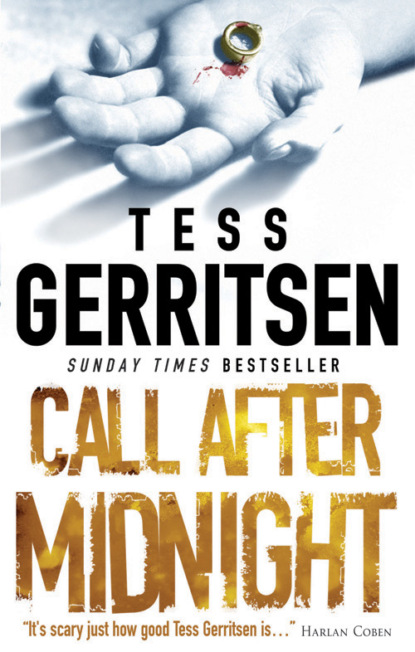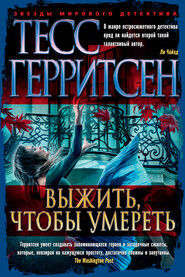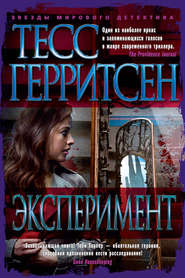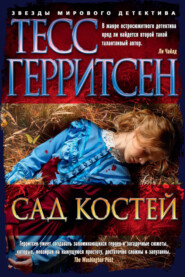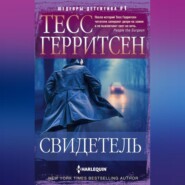По всем вопросам обращайтесь на: info@litportal.ru
(©) 2003-2025.
✖
Call After Midnight
Автор
Год написания книги
2019
Настройки чтения
Размер шрифта
Высота строк
Поля
“It was…I guess six months ago. I met him at a coffee shop, near where I work.”
“Where do you work?”
“NIH. I’m a research microbiologist.”
His eyes narrowed. “What kind of research?”
“Bacterial genomes…. We splice DNA…. Why are you asking these questions?”
“Is it classified research?”
“I still don’t understand why—”
“Is it classified, Mrs. Fontaine?”
She stared at him, shocked into silence by the sharp tone of his voice. Softly she said, “Yes. Some of it.”
He nodded and pulled another sheet from the folder. Calmly he continued. “I had Mr. Corrigan in Berlin check your husband’s passport. Whenever you fly into a new country, a page is stamped with an entry date. Your husband’s passport had several stamps. London. Schiphol, near Amsterdam. And last, Berlin. All were dated within the last week. Any explanation why he’d visit those particular cities?”
She shook her head, bewildered.
“When did he call you last?”
“A week ago. From London.”
“Can you be sure he was in London?”
“No. It was direct dial. There was no operator involved.”
“Did your husband have a life-insurance policy?”
“No. I mean, I don’t know. He never mentioned it.”
“Did anyone stand to benefit from his death? Financially, I mean.”
“I don’t think so.”
He took this in with a frown. Settling back onto the desk, he crossed his arms and looked away for a moment. She could almost see his mind churning over the facts, juggling the puzzle pieces. She was just as confused as he was. None of this made sense; none of it seemed possible. Geoffrey had been her husband, and now she was beginning to wonder if Nick O’Hara was right. That she’d never really known him. That all she and Geoffrey had shared was a bed and a home, but never their hearts.
No, this was all wrong; it was a betrayal of his memory. She believed in Geoffrey. Why should she believe this stranger? Why was this man telling her these things? Was there another purpose to all this? Suddenly she disliked Nick O’Hara. Intensely. He was flinging these questions at her for some unspoken reason.
“If you’re finished…” she said, starting to rise again.
He glanced at her with a start, as if he’d forgotten she was still there. “No. I’m not.”
“I’m not feeling well. I’d like to go home.”
“Do you have a picture of your husband?” he asked abruptly.
Taken aback by his sudden request, Sarah opened her purse and pulled a photograph from her wallet. It was a good likeness of Geoffrey, taken on a Florida beach during their three-day honeymoon. His brilliant blue eyes stared directly at the camera. His hair was bright gold, and the sunlight fell at an angle across his face, throwing shadows on his uncommonly handsome features. He was smiling. From the start she’d been drawn to that face—not by just the good looks, but by the strength and intelligence she’d seen in the eyes.
Nick O’Hara took the picture and studied it without comment. Watching him, she thought, He’s so unlike Geoffrey. Not golden haired but dark, not smiling but very, very sober. A troubled cloud seemed to hang over Nick O’Hara, a cloud of unhappiness. She wondered what he was thinking as he gazed at the picture. He showed little emotion, and except for the lines of fatigue, Sarah could read very little in his face. His eyes were a flat, impenetrable gray. He passed the photo briefly to Mr. Greenstein, then silently handed Geoffrey’s picture back to her.
She closed her purse and looked at him. “Why are you asking all these questions?”
“I have to. I’m sorry, but it really is necessary.”
“For whom?” she asked tightly. “For you?”
“For you, too. And maybe even for Geoffrey.”
“That doesn’t make sense.”
“It will when you’ve heard the Berlin police report.”
“Is there something else?”
“Yes. It’s about the circumstances of your husband’s death.”
“But you said it was an accident.”
“I said it looked like an accident.” He watched her carefully while he spoke, as if afraid to miss any change in her face, any flicker of her eye. “When I spoke to Mr. Corrigan a few hours ago, there had been a new development. During a routine investigation of the fire, the debris from the room was examined. When they sifted through the mattress remains, they found a bullet.”
She stared at him in disbelief. “A bullet?” she said. “You mean…”
He nodded. “They think it was murder.”
CHAPTER TWO (#ulink_220369dc-8535-5859-8808-0013c182b041)
SARAH STARTED TO speak, but her voice refused to work. Like a statue, she sat frozen in her chair, unable to move, unable to do anything but stare at him.
“I thought you should know,” said Nick. “I had to tell you in any event, because now we’ll need your help. The Berlin police want information about your husband’s activities, his enemies…why he might have been killed.”
She shook her head numbly. “I can’t think of… I mean I just don’t know…. My God!” she whispered.
The gentle touch of his hand on her shoulder made Sarah flinch. She looked up and saw the concern in his eyes. He’s worried I’ll faint, she thought. He’s worried I’ll get sick all over his nice thick carpet and embarrass us both. With sudden irritation she shook off his hand. She didn’t need anyone’s rehearsed sympathy. She needed to be alone—away from bureaucrats and their impersonal file folders. She rose unsteadily to her feet. No, she was not going to faint, not in front of this man.
Nick reached for her arm and nudged her gently back into the chair. “Please, Mrs. Fontaine. Another minute, that’s all I need.”
“Let me go.”
“Mrs. Fontaine—”
“Let me go.”
The sharpness of her voice seemed to shock him. He released her but did not back away. As she sat there, she was acutely aware of various aspects of his presence—the faint smell of after-shave and fatigue, the dull gleam of his belt buckle, the wrinkled shirt sleeves.
“I’m sorry,” he said. “I didn’t mean to crowd you. I was just worried that…well…”





